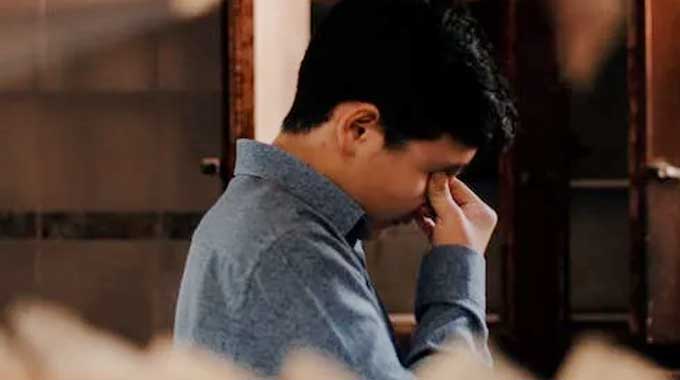Manic Depression - Bipolar Disorder
Bipolar disorder - also known as bipolar affective disorder - causes intense mood swings, as well as changes in behavior, activity levels, and energy levels. The mental health condition used to be called manic depression, though stigmatization and negative attitudes towards the term led mental health professionals to rename the illness in the 1980s.
People with bipolar disorder experience extreme "up" periods called manic episodes and intense "down" periods referred to as depressive episodes. Some people with this mental health condition can also have times of mixed manic and depressive symptoms, called a mixed episode. These bipolar disorder mood episodes can last a week or two, with symptoms occurring nearly every day.
What are the Different Types of Bipolar Disorder?
The three main types of bipolar disorder include:
Bipolar I Disorder
This version of bipolar disorder involves manic episodes that last at least seven days, though generally last three to six months without treatment. Sometimes people's manic symptoms can be so severe that immediate hospital care is required. People with Bipolar I Disorder will also experience depressive episodes lasting at least two weeks, though without treatment can last six to twelve months. This form of bipolar disorder also causes mixed episodes.
Bipolar II Disorder
Bipolar II disorder mainly involves depressive episodes and periods of hypomania - this is a milder version of mania, normally lasting for a shorter period of a few days but which can still have a significant impact on day-to-day life.
Cyclothymic Disorder
Cyclothymic disorder - or cyclothymia - consists of regular hypomania and depressive symptoms. In this case, an individual's symptoms are not as intense as in other versions of bipolar disorder, though they can last longer. To be diagnosed with cyclothymia, symptoms must last around one year in children and teenagers, and around two years in adults. Cyclothymia can later develop into bipolar disorder I or II.
What Are Bipolar Disorder Season Patterns?
Symptoms of bipolar disorder I or II are impacted by the seasons. This is where either maniac, hypomanic, or depressive symptoms change regularly with the seasons. For example, a person with Bipolar II Disorder may have a depressive episode each winter, though their hypomania follows no regular pattern. This is similar to other mood disorders, such as seasonal affective disorder.

When Does Bipolar Disorder Develop?
A person with bipolar disorder usually starts to show symptoms before they reach 20 years old. However, some individuals develop manic-depressive illness later in life. In some rare cases, people can develop bipolar disorder after the age of 40.
What are the Symptoms of Bipolar Disorder?
There are different intensities of bipolar disorder, meaning some people can manage their symptoms more easily than others. The symptoms a person with bipolar disorder will experience highly depends on the stage of their condition. However, going through any of these periods at any intensity can have a serious impact on a person's day-to-day life. Bipolar disorder can interfere with all aspects of life, including relationships, work, school, finances, and legal standing.
This is especially true if someone with bipolar disorder goes through a period of "rapid cycling." This is where an individual experiences four or more episodes of depression or mania within a one-year period. This distinct pattern of frequent episodes can occur at any point in the course of bipolar disorder.
Manic Episodes
Manic symptoms of bipolar disorder can include:
- Feeling energetic, elated, up, and high - even if things are not going well
- Irritable mood and a short temper
- Feeling very jumpy or wired
- Periods of over-activity
- Moving from one idea to the next
- Being full of exciting and new ideas
- Racing thoughts and talking very quickly
- Not sleeping at all or only getting a few hours of sleep, yet feeling rested
- Erratic and risky behavior - having reckless sex, eating or drinking too much, spending lots of money, gambling, using drugs
- Feeling unusually talented, important, or powerful
Hypomanic Episodes
Hypomanic episodes are milder and shorter than manic episodes. Sometimes a hypomanic period can make people with bipolar disorder feel good about themselves, providing a feeling of achieving a lot. However, after this active period, severe mood swings can occur, and depressive symptoms can start to take shape.
Due to the milder symptoms of hypomanic episodes, the person experiencing it may not notice the change in their behavior. In such cases, it may be family and friends that recognize the out-of-character changes in their loved one.
Depressive Episodes
Depression symptoms of bipolar disorder include:
- Feeling sad, hopeless, guilty, and indifferent
- Worthlessness and low self-esteem
- Low energy
- Lack of interest in activities they usually enjoy
- Unable to do simple everyday things such as showering, making food, even getting out of bed
- Feeling lonely and isolating themselves
- Talking very slowly and feeling like there is nothing to say
- Forgetfulness
- Feeling restless and irritable
- Sleeping too much
- Eating too much or not enough
- Thoughts of death or suicide
Mixed Episodes
People with bipolar disorder going through a mixed episode can experience both sides of the illness at the same time. Someone going through a mixed episode can have feelings of sadness and hopelessness while at the same time being extremely energetic and over-active.
Psychotic Symptoms
It is also possible for people with bipolar disorder to experience psychotic symptoms during a severe episode. These symptoms include:
- Hallucinations: seeing and hearing things that are not there, though feel real to the person. For example, some with psychotic symptoms may hallucinate another person talking to them when they are not.
- Delusions: believing things that are not true, leading to other people finding these beliefs unusual. For example, believing you have superpowers or a person is trying to hurt you.
Psychotic symptoms can take shape in both manic and depressive episodes and tend to reflect the individual's mood during that time. If a person is going through a manic episode with emotions of grandeur, they may experience psychotic delusions of, for example, the government monitoring them. A person with bipolar disorder going through a depressive episode may feel lonely and isolated. As a result, they may believe that nobody else can see them, or even they feel as though they don't exist.

What are the Complications of Bipolar Disorder?
It is vital that people with bipolar disorder obtain the right support and treatment for their mental health condition. Bipolar disorder increases an individual's chance of suicide 17-20 fold compared to the general population. It also increases the chance of self-harm by over 40%.
Individuals with bipolar disorder may find it difficult to manage their finances, with manic episodes commonly resulting in people spending money impulsively. People with bipolar disorder also have a higher risk of developing a physical health condition - such as diabetes or heart disease.
The risky behavior associated with mania and hypomania means people increase their intake of drugs and alcohol. This has a huge negative impact on their mental and physical health, and these substances can often interfere with bipolar disorder medication being taken - in turn, this makes symptoms worse.
What Causes Bipolar Disorder?
The exact causes of bipolar disorder are still unknown, however, there are several risk factors at play that contribute to the development of the condition. These include:
- Genetics and family: studies have shown that having a parent or sibling with bipolar disorder means an individual is at higher risk of developing it themselves. This risk is heightened further if their twin or both parents have the condition. However, genetic causation is complicated with many gene interactions at play, meaning not a single gene can be determined as the cause of bipolar.
- Brain structure and function: possible problems with the neurotransmitters.
- Environmental stress and trauma: going through a stressful or traumatic life event can increase the risk of developing bipolar disorder. This can include relationship issues, physical illness, death, abuse, sleep disturbances, or monetary issues.
How Do You Diagnose Bipolar Disorder?
Diagnosing bipolar disorder involves a number of different tests. These can include:
- A physical examination
- A medical history check: a medical professional will ask questions about the individual's family history, medical history, symptoms, and experiences. This allows them to gain a full perspective on their mental health condition and piece together if they have bipolar disorder.
- A mental health evaluation: a mental health specialist may also carry out further tests to diagnose bipolar disorder.
- Medical tests: to rule out any other conditions being diagnosed.
Unlike physical illnesses, where visual examinations and chemical tests can be conducted to get accurate diagnoses, mental disorders can be difficult to determine - this means getting a correct bipolar disorder diagnosed can take time, with doctors commonly diagnosing individuals with another mental illness - such as major depression - before landing on the correct one.
Treating Bipolar Disorder
Bipolar disorder is a lifelong illness that can hugely interfere with day-to-day functioning in someone's life. However, it is important to note that there are a number of treatment options for this mental health condition that allows people living with even the most severe forms of it to lead happy, healthy, and fulfilling lives.
Medicines
There are numerous mood-stabilizing medicines available to treat bipolar disorder symptoms in both manic and depressive episodes. There are many options due to differences between people's brain functioning, disease symptoms, and how they may react to a particular medicine. A person may have to try several before finding the right one for them - which is effective but with minimal side effects. Some people with bipolar disorder take multiple medications at the same time to control all symptoms.
When taking medication to control the manic depressive illness, it is important that it is taken consistently as prescribed. Also, a person on medication to control their mood swings should never stop taking it without discussing it with a mental health professional.
Psychotherapy
Psychotherapy or talk therapy can be extremely helpful for people with bipolar disorder dealing with the thoughts associated with this mental health condition. This mode of treatment gives individuals more power over their troubling emotions, behaviors, and thoughts caused by the disorder, giving them a chance to change how bipolar disorder impacts them and their life.
Psychotherapy also provides an opportunity for building a supportive and more understanding network of family and friends. Educational sessions can teach others about what their close loved one is experiencing and how they can best support them. This leads to a stronger network that is equipped with coping strategies to help both themselves and the person with bipolar disorder.
There are several kinds of psychotherapy that can be used as treatment options for bipolar. These include:
- Cognitive behavioral therapy (CBT): this allows people to recognize unhelpful thoughts and triggers and put in place coping mechanisms to better deal with them.
- Interpersonal therapy: this kind of psychotherapy is centered around interpersonal relationships with others.
Electroconvulsive Therapy (ECT)
This brain stimulation procedure can help relieve the symptoms of bipolar disorder. It is most often used in severe cases, if other treatment options have not worked, or if an individual needs treatment options that take effect quickly - for example if they are at high risk of suicide.
Lifestyle Changes
There are some small lifestyle changes that can really make a difference when coping with mental well-being. It is no surprise that exercise is good for maintaining mental health. It has been shown to alleviate depressive and anxious symptoms, plus help individuals to sleep better.
Routine is also very helpful for managing mental well-being, giving purpose and structure to each day. This includes activities like eating, shopping, and sleeping at the same time.

Life Charts
Keeping a life chart allows for daily moods, mood swings, sleeping patterns, and life events to be tracked. This can help people with bipolar disorder to understand and manage their symptoms.
Support Groups
Support groups can be extremely helpful in coping with mental health disorders, creating an environment of understanding and support with people who have been through a similar experience. Support groups are key for reducing loneliness and receiving helpful advice.
Contact Us
If you think you or your loved one may be dealing with bipolar disorder, GIA Miami is the perfect treatment center to call. The facility is located in idyllic Miami, providing great weather all year round and a perfect location to recover from mental illness.
The team of internationally acclaimed experts offers the most advanced, evidence-based programs that can be highly individualized to suit each client's needs. The staff at GIA Miami approach each person with discretion and empathy and totally free of judgment - creating a warm and relaxing environment where your privacy and health are fully respected.
GIA Miami serves the mental health needs of all patients, regardless of their sexual orientation, age, sex, disability, race, or political affiliation.
To start your journey to health and get your bipolar disorder symptoms under control with ongoing treatment, please contact our center today for a free consultation and take steps toward getting the mental wellness you deserve.

